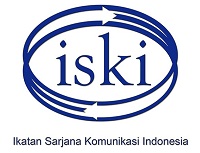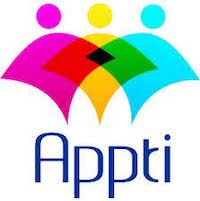Good Communication for Entrepreneurial Literacy at Pesantren
DOI:
https://doi.org/10.29313/mediator.v16i2.2772Keywords:
communication, literacy, entrepreneurship, pesantrenAbstract
Entrepreneurship greatly contributes to increasing competitiveness, creating jobs, gaining career opportunities, and accelerating economic growth. There have been many studies related to entrepreneurship, but unfortunately, none of them has reviewed the competency framework of entrepreneurship as a life skill, especially in pesantren (Islamic boarding schools). The purpose of this research is to provide an overview of the state of entrepreneurial literacy and skills based on its competency framework. This study describes how to obtain ideas and opportunities, map the resources owned, and take actions to map the entrepreneurial culture built by pesantren. This research is conducted at Pesantren Sirojul Huda. The method used is a qualitative descriptive research method with data collection techniques through interviews and observation. As a result, three thematic areas: (1) ideas and opportunities, (2) resources, and (3) into action, it was found that the mapping of Islamic boarding school entrepreneurial culture was going well, and synergy between the parties in the Islamic boarding school was created thanks to the interpersonal communication carried out. Interpersonal communication has a big role in making this happen.
References
Bacigalupo, M., Kampylis, P., Punie, Y., & Brande, G. Van Den. (2016). EU veröffentlicht Referenzrahmen für unternehmerische Kompetenz. Kooperation-International. https://doi.org/10.2791/593884
Baggen, Y., & Kaffka, G. (2022). Requested by the EMPL committee Entrepreneurial Literacy and Skills, (May).
Bell, R., & Bell, H. (2016). Replicating the networking, mentoring and venture creation benefits of entrepreneurship centres on a shoestring: A student-centred approach to entrepreneurship education and venture creation. Industry and Higher Education, 30(5), 334–343. https://doi.org/10.1177/0950422216660921
Creswell, J. W. (2016). Educational Research: Planning, Conducting, and Evaluating Quantitative and Qualitative Research (4th Editio). Pearson.
Davey, T., Hannon, P., & Penaluna, A. (2016). Entrepreneurship education and the role of universities in entrepreneurship: Introduction to the special issue. Industry and Higher Education, 30(3), 171–182. https://doi.org/10.1177/0950422216656699
Devito. A. J. (2013). Joseph A. DeVito - The Interpersonal Communication Book (13th Edition) (2012, Pearson) - libgen.lc. (K. Bowers, Ed.) (13th ed.). New York: pearson.
Djumransjah, H. . (2001). Pendidikan Pesantren dan Kemandirian Santri. Pendidikan Adalah Usaha Membina Dan Mengembangkan Kepribadian Manusia Baik Dibagian Rohani Atau Dibagian Jasmani. Jurnal Ilmu Pendidikan. Jilid 8 Nomor 2, 139-149. DOI: 10.17977/jip.v8i2.548
European Commission. Directorate-General for Employment, S. A. and I. (2021). Building an economy that works for people : an action plan for the social economy., 1–24. https://doi.org/10.2767/12083
Fayolle, A. (2013). Personal views on the future of entrepreneurship education. Entrepreneurship & Regional Development, 25, issue(7–8), 692–701. https://doi.org/10.1080/08985626.2013.821318
Franco, M., Godinho, L., & Rodrigues, M. (2021). Exploring the influence of digital entrepreneurship on SME digitalization and management. Small Enterprise Research, 1–24. Retrieved from https://doi.org/10.1080/13215906.2021.1938651
Jack, S., Moult, S., Anderson, A. R., & Dodd, S. (2010). An entrepreneurial network evolving: Patterns of change. International Small Business Journal, 28(4), 315–337. https://doi.org/10.1177/0266242610363525
Kakouris, Alexndros; Georgiadis, P. (2016). Analysing Enterpreneurship Education: a bibliometric survey pattern. Journal of Global Entrepreneurship Research, 6(6).
Lackéus, M. (2015). Entrepreneurship in education: What, why, when, how. Entrepreneurship 360 background paper, OECD-LEED.
Lewrick, M., Omar, M., Raeside, R., & Sailer, K. (2011). Education for entrepreneurship and innovation: “Management capabilities for sustainable growth and success.” World Journal of Entrepreneurship, Management and Sustainable Development, 6(1/2), 1–18. https://doi.org/10.1108/20425961201000001
Li, F. (2014). Intention-Based Models of Entrepreneurship Education Intention-based models of entrepreneurship education. Piccolla Impresa/Small Business, (January 2004). Retrieved from https://www.researchgate.net/profile/Francisco-Linan/publication/235937886_Intention-Based_Models_of_Entrepreneurship_Education/links/02e7e53b246df9830a000000/Intention-Based-Models-of-Entrepreneurship-Education.pdf
Martin, B. C., McNally, J. J., & Kay, M. J. (2013). Examining the formation of human capital in entrepreneurship: A meta-analysis of entrepreneurship education outcomes. Journal of Business Venturing, 28(2), 211–224. https://doi.org/10.1016/j.jbusvent.2012.03.002
Pittaway, L., & Cope, J. (2007). Simulating entrepreneurial learning: Integrating experiential and collaborative approaches to learning. Management Learning, 38(2), 211–233. https://doi.org/10.1177/1350507607075776
Putra, R. P., Rachmawati, I., Triwardhani, I. J., Komunikasi, I., & Bandung, U. I. (2023). Komunikasi Pemasaran Digital Dalam Program, 8(2), 289–303. Retrieved from http://jurnalilmukomunikasi.uho.ac.id/index.php/journal/index
Rosca, E., Agarwal, N., & Brem, A. (2020). Women entrepreneurs as agents of change: A comparative analysis of social entrepreneurship processes in emerging markets. Technological Forecasting and Social Change, 157(November 2018), 120067. https://doi.org/10.1016/j.techfore.2020.120067
Syafe’i, I. (2017). Pondok Pesantren: Lembaga Pendidikan Pembentukan Karakter. Al-Tadzkiyyah: Jurnal Pendidikan Islam, 8(1), 61. https://doi.org/10.24042/atjpi.v8i1.2097
Temple, P. (2016). Handbook on the Entrepreneurial University. London Review of Education (Vol. 12). https://doi.org/10.18546/lre.12.2.10
Triwardhani, I. J., & Chaerowati, D. L. (2019). Interpersonal communication among parents and children in fishermen village in cirebon Indonesia. Jurnal Komunikasi: Malaysian Journal of Communication, 35(2), 277–292. https://doi.org/10.17576/JKMJC-2019-3502-17
Triwardhani, I. J., Trigartanti, W., & Putra, R. P. (2020). Study of communication ethnography for entrepreneurship culture in the interpersonal relations of teachers and students. Jurnal Komunikasi: Malaysian Journal of Communication, 36(1), 109–123. https://doi.org/10.17576/JKMJC-2020-3601-07
Tubbs, Mark E. ; Ekeberg, S. E. (1991). The role of intentions in work motivation: Implications for goal-setting theory and research. The Academy of Management Review, 16(1), 180–199. https://doi.org/https://doi.org/10.2307/258611
Downloads
Published
Issue
Section
License
Copyright (c) 2023 Yulianti, Ike Junita Triwardhani, Endri Listiani

This work is licensed under a Creative Commons Attribution-ShareAlike 4.0 International License.























